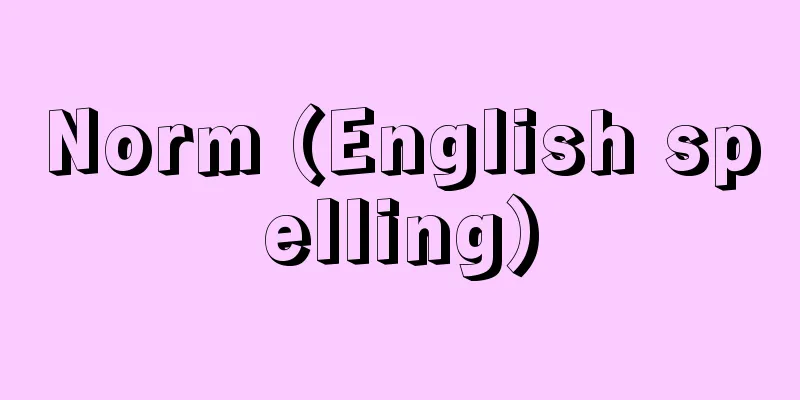Smetana - Bedřich Smetana

|
A composer who built the foundations of Czech national music. Born in Bohemia on March 2nd, as the eldest son of a brewery engineer who was also an amateur musician. He learned piano and violin from an early age, and gave a public piano performance at the age of six. During his time at gymnasium, he met and was influenced by Havlíčuk, who would later become a famous revolutionary poet. In 1843, despite his father's opposition, he went to Prague with the aim of becoming a professional musician, and studied harmony, counterpoint, and composition under Proksch. In 1846, he met Berlioz and Schumann, and in 1848 he dedicated a piano piece to Liszt, who warmly supported him. At the time, Czechoslovakia was under Austrian rule, and a resistance movement spread among the people, and in June 1848 unrest broke out in Prague. Awakened to national consciousness, Smetana joined the National Volunteer Corps and went on to compose pieces such as the National March. However, after the failure of the Soviet Union, free musical activity was suppressed under the reactionary government, so he went to Sweden on the advice of a friend and opened a music school in Gothenburg. The success of his educational activities led to him being welcomed as the conductor of the Harmony Society, and he worked to introduce and popularize major choral works from Handel to Mendelssohn as well as modern music. He also devoted himself to composing, and in 1957 he was strongly influenced by Liszt, whom he met in Weimar, and completed three symphonic poems. In the 1860s, as Austrian pressure began to ease, the time finally came for the Czech Republic to build a national culture. A national theatre was planned in Prague, and a temporary theatre was built to serve as a starting point. Smetana returned to the Czech Republic in May 1861 and gave a concert of his own compositions, but the conservatives who held real power in the music world at the time harshly criticised his works for being heavily influenced by Liszt and Wagner. However, he actively engaged in enlightenment activities aimed at creating a new national music, and eventually became conductor of the Frahol Choral Society and chairman of the musical department of the Art Society. His first national opera, The Brandenburgers in Bohemia (1862-63), was opposed by the conservatives and finally premiered in 1866, but was well received by the audience, and his comic opera The Bartered Bride (1863, later revised) was a great success. This success led to Smetana becoming chief conductor of the Provisional Theatre. His third work, the tragedy Dalibor (1865-67), based on a legendary hero, was rejected by conservatives for its Wagnerian influence, but he continued to work on operas over a long period of time, and Ribš, which he composed between 1869 and 1872, was performed at the opening of the National Theatre in 1881. After completing Ribš, in 1874 he conceived the nationalistic symphonic poem cycle My Fatherland, which was just as good as the opera, and his creative talents reached their peak, but in October of the same year his ear disease rapidly worsened and he lost his hearing completely. As a result, he retired from all public duties, but continued to compose despite the conservatives' cold treatment, completing the symphonic poem My Fatherland over six years, and composing three operas and a string quartet, From My Life (1876). However, he began to show signs of mental confusion at the end of 1883, and died on May 12, 1884, in a psychiatric hospital in Prague. Smetana rejected the conservative nationalist idea that Czech musical style should be based on Czech folk music, and vividly embodied Bohemian legends, heroes, landscapes, and ideas in his eight operas and many symphonic poems with his innate dramatic talent. His autobiographical string quartet, From My Life, paved the way for later generations of program string quartets. [Mariko Teramoto] [References] | | |Source: Shogakukan Encyclopedia Nipponica About Encyclopedia Nipponica Information | Legend |
|
チェコ国民音楽の基礎を築いた作曲家。3月2日、アマチュア音楽家であったビール醸造技師の長男としてボヘミアに生まれる。幼時からピアノとバイオリンを学び、すでに6歳でピアノの公開演奏を行った。ギムナジウム時代に、のちに革命派の有名な詩人となるハブリーチュクと知り合い思想的影響を受ける。1843年、父の反対にもかかわらず職業的音楽家を目ざしてプラハに向かい、プロクシュに和声法、対位法、作曲を学ぶ。46年にはベルリオーズやシューマンに会い、48年にはリストにピアノ曲を献呈し、温かな援助を受けた。当時オーストリアの支配下にあったチェコでは、民衆の間に抵抗運動が広がり、48年6月にはプラハで動乱が勃発(ぼっぱつ)した。民族意識に目覚めたスメタナは国民義勇軍に加わり、さらに『国民軍行進曲』などを作曲した。しかし動乱失敗以後の反動政治の下では自由な音楽活動が抑圧されたため、友人の勧めでスウェーデンに向かい、イョーテボリで音楽学校を開設した。そしてこの教育活動の成功を契機にしてハーモニー協会の指揮者にも迎えられ、ヘンデルからメンデルスゾーンまでの合唱曲の大作や現代曲の紹介と普及に努めた。また作曲活動にも力を注ぎ、57年ワイマールで対面したリストから強い影響を受けて3曲の交響詩を完成した。 1860年代に入りオーストリアの圧力が緩み始めると、チェコにもようやく民族文化建設の時機が到来した。そしてプラハに国民劇場が計画され、さしあたり仮劇場が建設されることになった。スメタナは61年5月に帰国して自作演奏会を開いたが、当時音楽界の実権を握っていた保守派は、作品にリストやワーグナーの影響が強いことを手厳しく批判した。しかし彼は新たな国民音楽の創造に向けて活発な啓蒙(けいもう)活動を行い、やがてフラホル合唱協会の指揮者および芸術協会音楽部門議長に就任。彼の最初の国民歌劇『ボヘミアにおけるブランデンブルク家の人々』(1862~63)は保守派の反対を受け、66年ようやく初演されたが、聴衆には好意的に迎えられ、さらに喜歌劇『売られた花嫁』(1863。後に改訂)は大成功を収めた。そしてその成功によって、スメタナは仮劇場主席指揮者に就任した。伝説的英雄を主題にした第三作の悲劇『ダリボル』(1865~67)は、ワーグナー的色彩のために保守派から排斥されたが、彼は長期間をかけてさらにオペラ創作に取り組み、69~72年に作曲した『リブシュ』は81年の国民劇場の杮落(こけらおと)しに上演された。この『リブシュ』完成後の74年にはオペラと同様に国民主義的な連作交響詩『わが祖国』を構想し、彼の創作力は高みに達したが、同年10月には耳疾が急激に悪化して聴覚を完全に失った。そのため、すべての公的職務から退いたが、保守派の冷遇にもかかわらず作曲し続け、6年余をかけて交響詩『わが祖国』を完成し、3曲のオペラ、弦楽四重奏曲『わが生涯より』(1876)などを創作した。しかし83年末から精神錯乱の兆候が現れ、翌84年5月12日、プラハの精神科病院で生涯を終えた。 スメタナは、チェコの音楽様式はチェコ民謡を土台にすべきであるという保守的な国民主義の考え方を排し、8曲のオペラと多くの交響詩において、ボヘミアの伝説、英雄、風景、思想を生来の劇的才能で鮮やかに具現している。また、自叙伝的な弦楽四重奏曲『わが生涯より』は、後の世代の標題弦楽四重奏曲に道を開いた。 [寺本まり子] [参照項目] | | |出典 小学館 日本大百科全書(ニッポニカ)日本大百科全書(ニッポニカ)について 情報 | 凡例 |
<<: Smetana String Quartet (English: Smetana Quartet)
Recommend
Sandawe
...They are said to be one of the oldest ethnic g...
Brahmaputra River (English spelling)
It flows from the Tibet Autonomous Region of China...
Calcium hypochlorite - Diaensosan calcium
Ca(ClO) 2 (142.98). In addition to the anhydrous ...
Rhynchophoridae
...A general term for insects belonging to the Rh...
Gangyoku - Gangyoku
A jewel that is placed in the mouth of the decease...
Karahashi Arira - Karahashi Arira
...The family originated from Ariyoshi, the secon...
Lake Furen
A brackish lagoon at the base of the Nemuro Penin...
CLM
…Since water is useless as a fuel, methanol is us...
Fastener - Tomeg
A small device that is attached to prevent somethi...
Avignon - Avignon (English spelling)
The capital of Vaucluse department in southeaster...
X-ray astronomy
A branch of astronomy that studies celestial bodi...
Amateurism (English spelling)
A term used mainly in the sports world, it refers...
Talos - Talos (English spelling)
(1) A bronze monster in Greek mythology. He is sa...
Czech language - Czech (English)
Czech is the official language of the Czech Republ...
Nakasendai Rebellion - Nakasendai Rebellion
In 1335 (Kenmu 2), Tokiyuki, the surviving son of...









